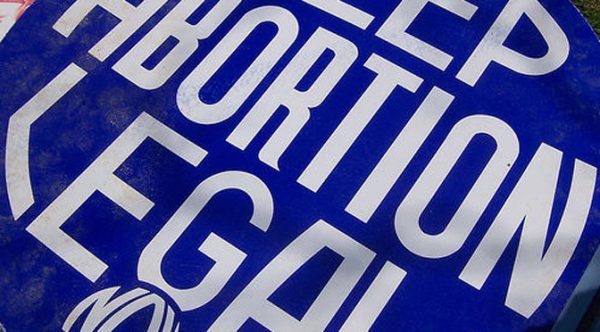TIME chose January 27, the day of the March for Life, to publish Rabbi Danya Ruttenberg’s claim that the pro-life movement does not have a handle on the term ‘pro-life’. (Interestingly, the piece didn’t even manage to properly refer to the March for Life by its name, as it’s titled, “Right to Life March: Women Should Reclaim the Term ‘Pro-Life’ from Anti-Abortion Activists.”
Why, you might ask, does Ruttenberg believe that “anti-abortion activists” aren’t really pro-life? Well, as usual, the answer has nothing to do with abortion.
Ruttenberg takes a stance in favor of abortion, condemning a pro-life view against abortion as “theological” in nature. She writes, “Even for those whose objections to the legalization of abortion come from the most specific of theological reasons — that is, that babies are innocent and deserve special concern — it doesn’t hold up.”
What Ruttenberg misses completely is that pro-lifers really don’t need to look to theology to tell us the truth about the biology of human beings. Science tells us that life begins at conception. There’s nothing theological there. The fact that babies are ‘innocent’ also has less to do with theology than with the psychology of human development.
Ruttenberg attempts to paint a repeal of the Affordable Health Care Act (ACA) as if it wouldn’t be pro-life, writing, “After all, the impact on an ACA repeal on families with preemies or who need the Neonatal Intensive Care Unit is likely to be devastating. Even those who prioritize infant life over adult life should be in favor of Obamacare.” First of all, it is an untruth to say that pro-lifers prioritize the lives of the preborn over adult lives; the reality is that pro-lifers see the preborn as equal in value to those who are already born. With regard to these NICU babies mentioned by Ruttenberg (or even other situations), a replacement in addition to repeal is clearly a good idea. In fact, the pro-life United States Council of Catholic Bishops (USCCB) has urged replacing the health care law if it is to be repealed.
But Ruttenberg fails to address the very pro-abortion aspects of the ACA. A report from the GAO has found that the ACA does pay for elective abortions, despite President Obama’s promises to the contrary. Had the provision not been halted by a federal judge, the ACA could have also forced employer coverage of abortions. Ruttenberg may find it pro-life to be “pro-contraception,” but she fails to mention the moral objections of those employers who had been forced to cover contraception, including those which may act as abortifacients, as part of the contraception mandate. For these reasons, many pro-life people do not support certain provisions of the law.
Ruttenberg also states her belief that gun control and the abolition of the death penalty are ‘pro-life’. Yet, while there are pro-lifers who are in agreement about these issues — which Ruttenberg admits in referencing those who “espouse a consistent life ethic” — she thinks they should part ways when they can’t agree on abortion. (Other pro-lifers would disagree with Ruttenberg on these issues.)
Ruttenberg includes rallying cries in favor of abortion throughout her article, including:
“Pro-life” is ours now. It should become a rallying point for those of us resisting the new Donald Trump administration and its threats to our inalienable rights.
We are pro-contraception and pro-choice. We are pro-enabling parenthood to be chosen and children to be cared for, and against unsafe back-alley abortions. Some of us might think that abortion is morally wrong, but know that personal feelings should not drive national legislation. We know that there are a lot of different ways to understand this complex issue and that, ultimately, the Fourteenth Amendment’s guarantee of personal privacy means that each individual should have the right to choose….
… this Constitutionally guaranteed right to bodily autonomy.
It is ironic that Ruttenberg would speak in terms of being “pro-life” and supportive of the idea of “inalienable rights,” when she is in favor of denying the first and foremost inalienable right — the right to life — for those humans who exist but have not yet emerged from the womb.
Abortion activists may believe that the Constitution and the Fourteenth Amendment guarantee the so-called right to privacy and bodily autonomy, but in applying this in the way that they do, they deny the preborn their right to life and their right to bodily autonomy. If the Fourteenth Amendment were interpreted correctly, it would also apply to favor the right to life for preborn Americans.
How can we care for those already born if they don’t have a chance to be born in the first place? Until then, Ruttenberg ought to have no claim on the pro-life title when she advocates for the death of the most vulnerable, innocent, and defenseless among us.








